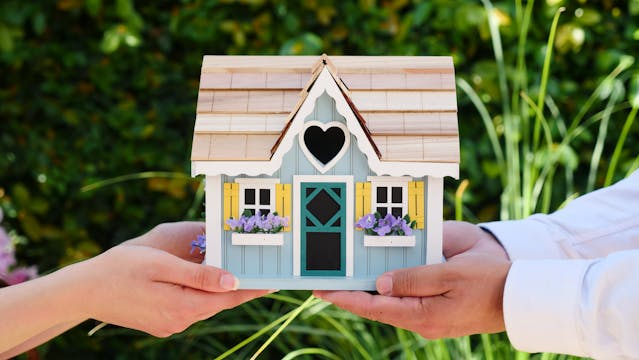11 Shocking Ways Your Childhood Affects Your Love Life (And How to Fix It)

Our childhood experiences shape who we are in countless ways, influencing how we interact with others, how we handle stress, and even how we approach love and relationships. While it’s easy to dismiss the impact of childhood on our adult relationships, the truth is that the foundation laid in those formative years often dictates the dynamics we experience in love.
From attachment styles to unresolved trauma, childhood wounds can shape how we give and receive love, and unfortunately, many of these patterns are unconscious. Understanding how your early experiences affect your romantic life is the first step in creating healthier, more fulfilling relationships.
Here are 11 shocking ways your childhood may be influencing your love life, along with tips on how to address these issues and improve your relationship dynamics.
1. You Struggle with Trust
If you grew up in an environment where trust was broken—whether due to a parent’s infidelity, inconsistency, or emotional neglect—it’s natural to carry those wounds into your adult relationships. As adults, we might find ourselves questioning our partner’s motives, feeling suspicious without reason, or constantly needing reassurance.
Why It Happens:
-
Broken trust in childhood can create deep-seated fears of betrayal. If you saw your parents or caregivers unable to provide a stable, trustworthy environment, it can lead to trust issues in relationships later in life.
How to Fix It:
-
Build self-awareness: Acknowledge your fears and remind yourself that not everyone is out to hurt you. Practice open communication with your partner, expressing your trust issues without placing blame.
-
Seek therapy: If trust issues are deeply ingrained, working with a therapist to uncover the roots of these fears can help you process and heal.
2. You Seek Validation From Your Partner
Many people who didn’t receive enough emotional validation as children end up looking for constant reassurance and approval from their romantic partners. If your parents were emotionally unavailable or critical, you might carry a deep need to feel valued and affirmed in relationships.
Why It Happens:
-
Lack of validation during childhood can lead to seeking external affirmation. If you didn’t receive encouragement or emotional support growing up, you may look to your partner to fill that emotional void.
How to Fix It:
-
Cultivate self-worth: Learn to validate yourself. Start by practicing self-affirmation and being kind to yourself when you make mistakes.
-
Communicate your needs: Let your partner know that while validation is important, it shouldn’t be their sole responsibility. Develop self-confidence and work on being secure in your own worth.
3. You Have an Avoidant Attachment Style
Children who grow up in emotionally unavailable environments, where their needs for connection or affection are not met consistently, often develop an avoidant attachment style. This manifests as a tendency to distance oneself emotionally in adult relationships, resisting closeness and intimacy.
Why It Happens:
-
Emotional neglect or rejection can make a child feel that attachment to others isn’t safe. As adults, those individuals may avoid deep emotional connections to protect themselves from potential hurt.
How to Fix It:
-
Challenge your avoidance: Start by gradually opening up to your partner in small ways. Work on being more emotionally present and receptive to affection and closeness.
-
Therapy: Consider working with a therapist to address the underlying causes of avoidant behavior and help you develop healthier attachment patterns.
4. You Fear Abandonment
If you grew up with a caregiver who was inconsistent or emotionally unavailable, you may have developed a fear of abandonment. This fear can manifest as anxiety in relationships, where you constantly worry that your partner will leave you, even if there’s no reason to believe they will.
Why It Happens:
-
Inconsistent or unpredictable care during childhood can create deep fears of being abandoned or left behind. These fears often carry over into adult relationships, making it difficult to trust that a partner will stay.
How to Fix It:
-
Challenge your fears: Practice grounding techniques when you feel anxiety about abandonment. Focus on the present and remind yourself that your partner’s actions are not reflective of past experiences.
-
Reassurance and boundaries: It’s important to openly communicate with your partner about your fears. Building trust through consistent, reassuring behaviors can help reduce anxiety.
5. You Repeat Dysfunctional Relationship Patterns
If your parents had an unhealthy or toxic relationship dynamic, you might unconsciously repeat these patterns in your own romantic relationships. For example, if you witnessed constant fighting or emotional manipulation as a child, you may find yourself in similar situations as an adult.
Why It Happens:
-
Learned behaviors: Children model behaviors they observe in their parents or caregivers. If you grew up in a household where dysfunctional relationships were normalized, you might replicate these unhealthy dynamics in your adult relationships.
How to Fix It:
-
Become self-aware: Start by identifying patterns of behavior in your relationships that mirror what you saw in childhood. Recognizing these patterns is the first step toward change.
-
Work on healthier communication: Learn conflict resolution techniques and develop healthy ways to express your emotions. Therapy can also help break these cycles.
6. You Feel Like You Have to “Fix” Your Partner
If you grew up in a family where one parent was emotionally or physically needy, you might have developed a tendency to over-function in relationships. This means you feel compelled to “fix” or “rescue” your partner, even if they don’t need or want that help.
Why It Happens:
-
Caretaker role: Children who grow up in dysfunctional or emotionally needy environments often take on the role of the caretaker, which can extend into their adult relationships. This role is rooted in the belief that love is about fixing or managing your partner’s issues.
How to Fix It:
-
Recognize your tendencies: Become aware of when you’re taking on too much responsibility for your partner’s emotional well-being.
-
Set boundaries: Remind yourself that you cannot “fix” anyone. Focus on creating a balanced relationship where both partners share responsibilities and support one another.
7. You Struggle with Emotional Intimacy
If your childhood involved emotional neglect or the belief that emotions were a burden or something to be hidden, you might struggle with emotional intimacy as an adult. You may have learned that vulnerability was a sign of weakness and thus avoid opening up in relationships.
Why It Happens:
-
Emotional suppression: If expressing emotions was discouraged or met with criticism in childhood, you may develop a tendency to suppress your feelings and avoid emotional intimacy.
How to Fix It:
-
Embrace vulnerability: Start small by sharing your feelings with your partner in safe, non-threatening situations. Gradually allow yourself to be vulnerable and trust that emotional intimacy can strengthen the bond in your relationship.
-
Seek therapy: A therapist can help you unpack your fears around vulnerability and work on building emotional intimacy in a healthy, manageable way.
8. You Seek Drama or Unstable Relationships
If you grew up in an environment where emotional turmoil or unpredictability was the norm, you may subconsciously seek out drama or unstable relationships as an adult. This can manifest as attracting partners who create chaos or feeling bored when things are calm.
Why It Happens:
-
Normalization of chaos: If your childhood was filled with emotional highs and lows, you may associate love with intensity and drama, and seek out relationships that mimic that environment.
How to Fix It:
-
Create emotional stability: Work on developing a sense of emotional stability within yourself. Engage in mindfulness and create routines that foster calm and peace.
-
Choose healthy relationships: Focus on attracting or cultivating relationships that are steady, nurturing, and peaceful. Avoid the urge to recreate chaos.
9. You Have a Fear of Vulnerability
Growing up in a home where emotions were suppressed or punished can result in an aversion to vulnerability as an adult. If your feelings were ignored, belittled, or not respected, you might shy away from sharing your true feelings with your partner.
Why It Happens:
-
Lack of safe emotional expression: If you weren’t allowed to express your feelings or were taught that vulnerability equaled weakness, it can lead to a lifelong fear of being open in relationships.
How to Fix It:
-
Create emotional safety: Foster a relationship where both partners feel comfortable being vulnerable. Start by sharing small things and gradually open up about deeper emotions.
-
Therapy: Working with a therapist can help you unpack your fear of vulnerability and teach you how to create a safe space for emotional connection.
10. You Over-Depend on Your Partner for Emotional Fulfillment
If you grew up in a situation where you lacked emotional support, you may rely too heavily on your partner for emotional fulfillment. You might feel that your happiness and emotional well-being are completely dependent on them.
Why It Happens:
-
Lack of emotional security: If you didn’t receive consistent emotional support growing up, you might struggle to develop emotional independence and rely on others to meet your emotional needs.
How to Fix It:
-
Develop emotional independence: Work on fostering your own happiness, hobbies, and emotional well-being outside the relationship. While your partner should be supportive, they shouldn’t be your sole source of happiness.
-
Balance the relationship: A healthy relationship is a partnership where both individuals maintain their emotional health independently but come together for support and connection.
11. You Recreate the Same Dysfunctional Patterns
Many people subconsciously repeat the dysfunctional patterns they witnessed in childhood. Whether it’s choosing emotionally unavailable partners or perpetuating conflict, these behaviors can deeply affect your love life.
Why It Happens:
-
Familiarity breeds comfort: Even negative patterns feel familiar, and our brains tend to gravitate toward what we know, even if it’s unhealthy. Recreating these dynamics can feel comforting despite the chaos they bring.
How to Fix It:
-
Break the cycle: Recognize the patterns from your childhood that you’re repeating. Seek professional help, such as therapy or relationship coaching, to break the cycle and create healthier dynamics.
-
Choose healthier behaviors: Focus on building relationships based on trust, mutual respect, and emotional growth. Challenge yourself to adopt new patterns of behavior that promote emotional health.
Conclusion: Healing from Childhood Wounds in Love
Our childhood experiences shape the way we approach love and relationships in profound ways, whether we realize it or not. By identifying how these early experiences affect our love lives, we can begin the process of healing, growth, and change. Working on emotional independence, building healthy communication skills, and confronting past trauma can help you break free from these patterns and create the kind of relationship you truly deserve.
Remember, it’s never too late to heal, and every step you take towards self-awareness is a step towards creating a healthier, more fulfilling relationship.
FAQs
1. How can I stop repeating dysfunctional relationship patterns?
Start by identifying the patterns you’re repeating. Therapy or counseling can help you understand the root causes and provide strategies to create healthier relationship dynamics.
2. Can childhood trauma affect my current relationships?
Yes, childhood trauma can deeply affect how you interact with partners, leading to issues like trust, emotional dependence, and attachment problems. Healing from these experiences is essential for healthier relationships.
3. How can I heal from my childhood wounds in a relationship?
Self-awareness, open communication with your partner, and seeking therapy are key steps in healing from childhood wounds. Taking responsibility for your emotional well-being can also promote healing.
4. Can I have a healthy relationship if I grew up in a dysfunctional environment?
Absolutely. It’s possible to have a healthy relationship even if you grew up in a dysfunctional environment, but it requires self-awareness, emotional growth, and a willingness to break negative patterns.
5. Should I talk to my partner about my childhood experiences?
Yes, open communication about your past can strengthen your relationship and help your partner understand your emotional needs and vulnerabilities.






